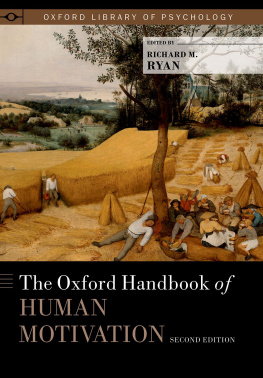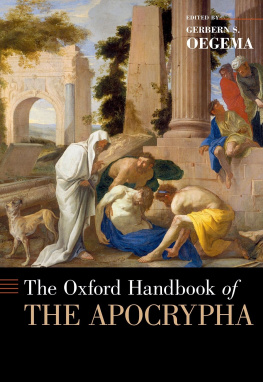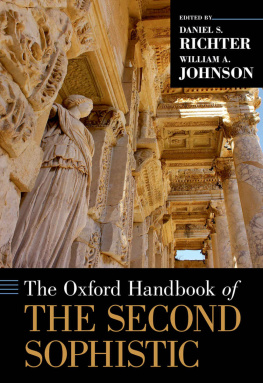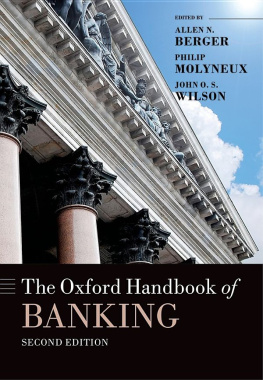Alan Burton-Jones - The oxford Handbook of Human Capital
Here you can read online Alan Burton-Jones - The oxford Handbook of Human Capital full text of the book (entire story) in english for free. Download pdf and epub, get meaning, cover and reviews about this ebook. year: 2012, publisher: Oxford University Press, genre: Business. Description of the work, (preface) as well as reviews are available. Best literature library LitArk.com created for fans of good reading and offers a wide selection of genres:
Romance novel
Science fiction
Adventure
Detective
Science
History
Home and family
Prose
Art
Politics
Computer
Non-fiction
Religion
Business
Children
Humor
Choose a favorite category and find really read worthwhile books. Enjoy immersion in the world of imagination, feel the emotions of the characters or learn something new for yourself, make an fascinating discovery.

- Book:The oxford Handbook of Human Capital
- Author:
- Publisher:Oxford University Press
- Genre:
- Year:2012
- Rating:4 / 5
- Favourites:Add to favourites
- Your mark:
- 80
- 1
- 2
- 3
- 4
- 5
The oxford Handbook of Human Capital: summary, description and annotation
We offer to read an annotation, description, summary or preface (depends on what the author of the book "The oxford Handbook of Human Capital" wrote himself). If you haven't found the necessary information about the book — write in the comments, we will try to find it.
The oxford Handbook of Human Capital — read online for free the complete book (whole text) full work
Below is the text of the book, divided by pages. System saving the place of the last page read, allows you to conveniently read the book "The oxford Handbook of Human Capital" online for free, without having to search again every time where you left off. Put a bookmark, and you can go to the page where you finished reading at any time.
Font size:
Interval:
Bookmark:
THE OXFORD HANDBOOK OF
HUMAN CAPITAL
THE OXFORD HANDBOOK OF
Edited by
ALAN BURTON-JONES
and
J.-C. SPENDER


Great Clarendon Street, Oxford OX2 6DP
Oxford University Press is a department of the University of Oxford.
It furthers the Universitys objective of excellence in research, scholarship, and education by publishing worldwide in
Oxford New York
Auckland Cape Town Dar es Salaam Hong Kong Karachi Kuala Lumpur Madrid Melbourne Mexico City Nairobi New Delhi Shanghai Taipei Toronto
With offices in
Argentina Austria Brazil Chile Czech Republic France Greece Guatemala Hungary Italy Japan Poland Portugal Singapore South Korea Switzerland Thailand Turkey Ukraine Vietnam
Oxford is a registered trade mark of Oxford University Press in the UK and in certain other countries
Published in the United States by Oxford University Press Inc., New York
Oxford University Press 2011
The moral rights of the author have been asserted Database right Oxford University Press (maker)
First published 2011
All rights reserved. No part of this publication may be reproduced, stored in a retrieval system, or transmitted, in any form or by any means, without the prior permission in writing of Oxford University Press, or as expressly permitted by law, or under terms agreed with the appropriate reprographics rights organization. Enquiries concerning reproduction outside the scope of the above should be sent to the Rights Department, Oxford University Press, at the address above
You must not circulate this book in any other binding or cover and you must impose the same condition on any acquirer
British Library Cataloguing in Publication Data Data available
Library of Congress Cataloging in Publication Data Data available
ISBN 9780199532162
ALAN BURTON-JONES AND J.-C. SPENDER
MARGARET M. BLAIR
2. A Social Perspective: Exploring the Links between
Human Capital and Social Capital
JANINE NAHAPIET
KOK-YEE NG, MEI LING TAN, AND SOON ANG
RHETT A. BRYMER, MICHAEL A. HITT, AND MARIO SCHIJVEN
PETER LEWIN
NICOLAI J. FOSS
J.-C. SPENDER
JEROEN KRAAIJENBRINK
BRIAN J. LOASBY
GEORG VON KROGH AND MARTIN W. WALLIN
PETER BOXALL
MONIKA HAMORI, ROCIO BONET, AND PETER CAPPELLI
DAVID P. LEPAK, RIKI TAKEUCHI, AND JUANI SWART
RUSSELL COFF
ROBIN KRAMAR, VIJAYA MURTHY, AND JAMES GUTHRIE
ROBERT M. GRANT AND JAMES C. HAYTON
DAVID ODONNELL
IKUJIRO NONAKA, RYOKO TOYAMA, AND VESA PELTOKORPI
JACQUELINE C. VISCHER
ALAN BURTON-JONES AND ANDREW BURTON-JONES
DAVID J. TEECE
PETER D. SHERER
SEN RIAIN
THOMAS CLARKE
THOMAS A. KOCHAN AND ADAM SETH LITWIN
The inspiration for this handbook came from David Musson, Business and Management Editor at Oxford University Press, who in late 2006 suggested to us the need for a volume that might throw fresh light on the subject of human capital from an organizational perspective. For some years we had been individually researching knowledge-based theories of management and organization and exchanging ideas on issues associated with the growing importance of knowledge capital, so we were delighted to have the opportunity to cooperate on this project. We set about attracting leading scholars from around the worldmore than forty distinguished academics from multiple disciplines finally contributing to the twenty-five chapters in the handbook. Despite operating as co-editors at long range from one another, the editorial process was remarkably smooth, with electronic communications overcoming the tyranny of distance.
Three and a half years later we are pleased to have an opportunity to express in a formal way our thanks to all those who have helped to bring this handbook to fruition. David Musson has been a constant source of advice, encouragement, and guidance throughout the project, and the members of his team at Oxford University Press, particularly Emma Lambert and Matthew Derbyshire, have provided invaluable technical and administrative support. Most of all we would like to thank all the authors who have contributed to this volume for their patience and cooperation in dealing with our queries and suggestions, and for the commitment they have shown to making this handbook a success.
Conceptual Model
Use and Learning Factors in the KnowledgeCognitionBehavior Interrelationship
Structures and Substructures
Working Time and Working Activity
Human Capital and Knowledge Assets
Human Capital AccrualKnowledge Assets Accrual
Human Capital DecreaseKnowledge Assets Accrual
Assets Decrease
Human Capital DecreaseKnowledge Assets Decrease
Promises, Trust, and Commitment in the Psychological Contract
An Organizations HR Strategy as a Cluster of HR Systems
Human Capital Characteristics and Employment Modes
Percentage of New Hires from Various Recruitment Sources in Large US Organizations in 2006
Sales, Including Temporary and Contract, and Search and Placement
HR Architectural Perspective
Relational Components of Organizational Learning
The Structural, Social, and Psychological Factors Influencing Interdependence
Contours of an Organizational Lifeworld
Interdependencies among People, Tasks, and Resources
Task Performance, and IS Support Activities
Resource Fit and Dependency Model
Activities Conducted to Create and Capture Value (Organized by Clusters of Dynamic Capabilities)
Organizational and Population Processes
Human Capital Formation Regimes
The Liberal Human Capital Formation Regime
The Social Democratic Human Capital Formation Regime
The Christian Democratic Human Capital Formation Regime
Share of World Manufacturing 1750900
Global Distribution of Public Expenditure on Education by Region
Stages of Competitive Development
Location of Product Development for Notebook PCs
Leaping Techno-Economic Paradigms
The Shift from a Production Economy to a Knowledge Economy
Comparison of GDP across Countries
Leveraging Knowledge Assets through Clusters
Representative Use and Learning Factors: Managerial Levers of Cognitive Human Capital
The Dimensions of Management Problems
Job Facet Priorities of British Workers
US-Employed Workers with Alternative and Traditional Work Arrangements by Occupation, 2005
Employer
Future Research Topics on Performance/Outcomes for the HR Architecture
Contemporary Developments of Human Capital Accounting
Interdependence as the Basis for Analyzing Coordination and Organization Design
Malones Analysis of Interdependence and Coordination
Competency Clusters
Types of Action
to SECI
Mapping of Features of Capital to Human Capital and IS Capital
Recent Studies of Interdependencies in Organizational Science and Information Systems
How Interdependencies were Studied in the Ten Articles
Summary of Interdependencies between Intellectual Resources
Key Differences between Traditional Teams and Virtuoso Teams
of the Business Enterprise
Performance Effects for Relocation and Replication Processes
Key Differences along Major Dimensions of Human Capital Formation Regimes
Next pageFont size:
Interval:
Bookmark:
Similar books «The oxford Handbook of Human Capital»
Look at similar books to The oxford Handbook of Human Capital. We have selected literature similar in name and meaning in the hope of providing readers with more options to find new, interesting, not yet read works.
Discussion, reviews of the book The oxford Handbook of Human Capital and just readers' own opinions. Leave your comments, write what you think about the work, its meaning or the main characters. Specify what exactly you liked and what you didn't like, and why you think so.











